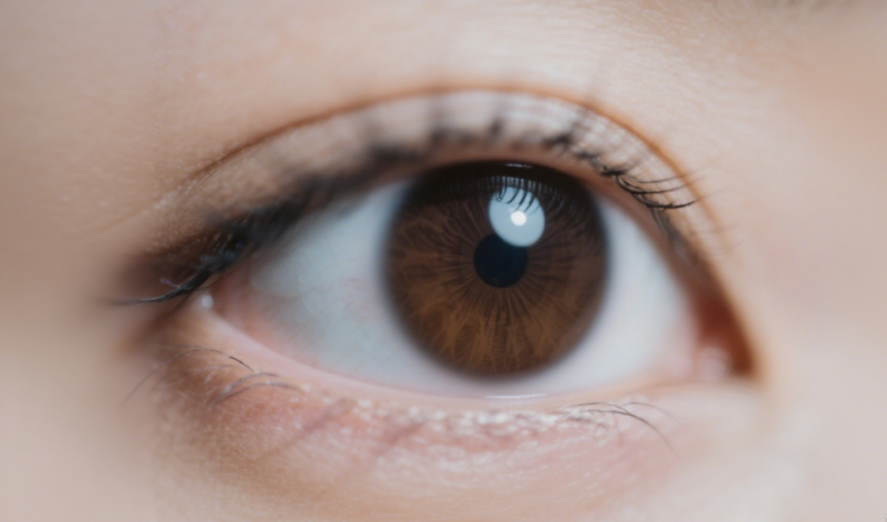Dry eyes can be a bother, but home remedies offer relief! Try blinking exercises to spread tears, use warm compresses for better oil gland function. Stay hydrated, eat omega-3 rich foods, use a humidifier, and avoid irritants. These simple steps can ease discomfort. If symptoms persist, consult an eye doctor for further help.
Dry eyes can be an uncomfortable and persistent problem that affects many people. Whether it’s due to spending long hours in front of digital screens, environmental factors like dry air, or certain medications, finding relief is crucial. Fortunately, there are several effective home remedies that can help soothe and treat dry eyes.
Blinking Exercises
One of the simplest yet often overlooked home remedies is performing blinking exercises. In our modern lives, we tend to blink less frequently when we are focused on tasks such as reading or working on a computer. Blinking helps to spread the tears evenly across the surface of the eyes, keeping them moist. Set aside a few minutes every hour to consciously blink your eyes slowly and deliberately. Close your eyes for a few seconds and then open them, repeating this process about 10 to 15 times. This can stimulate the production of natural tears and prevent the eyes from drying out too quickly.
Warm Compresses
Applying warm compresses to your eyes is another great home remedy. You can soak a clean, soft cloth in warm water (make sure it’s not too hot to avoid burning your eyes). Wring out the excess water and gently place the warm cloth over your closed eyelids. Keep it there for about 10 to 15 minutes. The warmth helps to improve the oil gland function around the eyes, which is essential for maintaining a healthy tear film. It also relaxes the eye muscles and increases blood circulation in the eye area, reducing dryness and irritation. You can do this a couple of times a day, especially before going to bed or when your eyes feel particularly dry.
Hydration
Staying well-hydrated is vital for combating dry eyes. Drinking an adequate amount of water throughout the day ensures that your body has enough fluid to produce tears. Aim to drink at least 8 glasses of water daily. Additionally, consuming foods with high water content like cucumbers, watermelons, and oranges can also contribute to overall hydration. Herbal teas can be a good alternative as well, as they not only provide hydration but may also have soothing properties for the eyes due to the presence of certain beneficial compounds.
Omega-3 Fatty Acids
Including more foods rich in omega-3 fatty acids in your diet can significantly improve dry eye symptoms. Fatty fish such as salmon, mackerel, and sardines are excellent sources of these healthy fats. You can also take omega-3 supplements if you don’t consume enough fish. Omega-3s help to reduce inflammation in the eyes and improve the quality of the oil layer in the tear film, which is crucial for preventing excessive evaporation of tears. Studies have shown that regular intake of omega-3s can lead to a notable reduction in dry eye discomfort over time.
Humidifiers
If the air in your living or working environment is dry, using a humidifier can make a big difference. Dry air can quickly evaporate the tears from your eyes, leaving them feeling parched. A humidifier adds moisture to the air, creating a more comfortable environment for your eyes. Place it in your bedroom, office, or any other area where you spend a significant amount of time. Make sure to clean the humidifier regularly according to the manufacturer’s instructions to prevent the growth of mold and bacteria that could otherwise cause other health issues.
Avoiding Irritants
Certain substances and habits can exacerbate dry eyes. Avoid smoking and being in smoky environments as much as possible, as smoke can irritate the eyes and make dryness worse. Also, limit your exposure to strong winds and harsh chemicals like cleaning products. When using cosmetics around the eyes, choose products that are labeled as hypoallergenic and gentle to minimize the risk of irritating the delicate eye tissues.
In conclusion, dry eyes don’t have to be a constant source of discomfort. By incorporating these simple home remedies into your daily routine, you can effectively manage and relieve the symptoms of dry eyes, allowing you to enjoy clear and comfortable vision without having to rely solely on prescription medications. However, if your dry eye symptoms persist or worsen despite trying these remedies, it’s advisable to consult an eye doctor for a more comprehensive evaluation and appropriate treatment.
